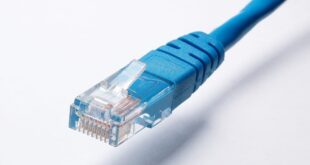Cyber Hygiene – What Is It?
The term “cyber hygiene” refers to the practice of maintaining good online habits and behaviors to protect yourself against digital threats such as cybercrime, data breaches, and hacking.
As an internet user, it is your responsibility to ensure that you are practicing optimal cyber hygiene to stay safe online. With the increase in digital activity in the wake of Covid-19, cyber threats are increasing too. Here are ten expert tips that can help maintain excellent cyber hygiene.
1. Strong & Unique Passwords
Using a strong, unique password is one of the most crucial steps for maintaining good cyber hygiene. Creating unique passwords for every account you have will prevent a hacker from having access to all your other accounts if one password is compromised. Your password should include a variety of letters, numbers, and symbols and be at least 12 characters long.
2. Two-Factor Authentication
Two-factor authentication adds an extra layer of security to your online accounts by verifying your identity through a secondary source before granting access. This way, even if someone else knows your password, they still won’t be able to access your accounts without the second factor.
3. Keep Your Software Up to Date
Keep all your hardware, software, and applications updated to ensure they have the most recent security features to protect your devices from malicious threats. Applying regular software updates is an easy and efficient way to maintain optimal cyber hygiene.
4. Back Up Your Data
A daily data backup routine for vital files, documents, and photos would ensure that you can retrieve all your data if you experience data loss due to cyber-attacks or even hardware damage.
5. Install Antivirus Software
Downloading powerful antivirus software and regularly scanning your device/s for potential threats like malware would provide a safe browsing experience. Antivirus software also offers secure browsing extensions that safeguard you against fake websites and phishing attempts.
6. Limit Personal Information Online
In the digital world, every interaction leaves behind virtual footprints and records which practically make your profile viewable to everyone. Cyberspace’s law enforcement authorities suggest minimizing personal data about your life examples like birthdate, address, and your phone number on social sites or generic forms as cyber attackers usually taking hold of these readily available details to target their victim/s by using hacking techniques.
7. Use Secure Wi-Fi Connection and VPNs
When you use WiFi at public spaces, such as buses, coffee shops, hotels, or airports, make sure your connection is secure and has a strong password authentication. A Virtual Private Network or a VPN app creates “tunnels” of encrypted data to make your internet communication effectively unjammable—a significant parameter to ensure a secure and convenient browsing experience.
8. Think Before Click
Always be wary of clicking on links or carelessly sharing information with anyone. Spare a moment and inspect hyperlinks, ensure emails and hyperlinks are trustworthy before committing to them. Think several times before downloading attachments or games, promoting on social networking sites.
9. Learn about Social Media Cyber Hygiene
Never completely expose everything about your life to the whole world.Talk locally and communicate meaningfully, while abandoning any shady “quick fixes” Be sure to keep chatty, vulnerable word sources cybersecurity from now on.
10. Prevention Is Key
Preventing cyber-attacks is cheaper and simpler than managing them. Train yourself, increase cyber hygiene, and anticipate to mitigate minor risks.This preventive strategy will help reduce the damage due to cyber-attacks and protects yourself and your organization against all sorts of digital crimes.
Conclusion
Cyber hygiene should become a fundamental element of our online life. Getting used to these expert tips can prevent threats and economic loss positively. Be extra vigilant against attacks, question critically everything you see and do in internet space. Always ensure to be cyber-resilient while being technologically advanced.
 Mind Uncharted Explore. Discover. Learn.
Mind Uncharted Explore. Discover. Learn.



